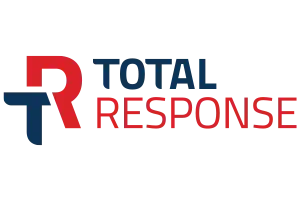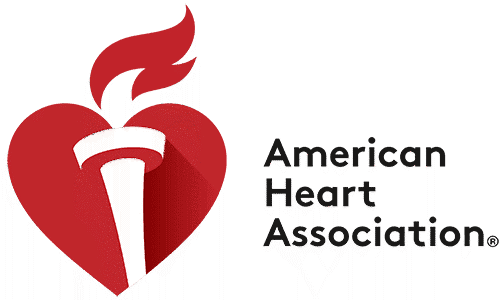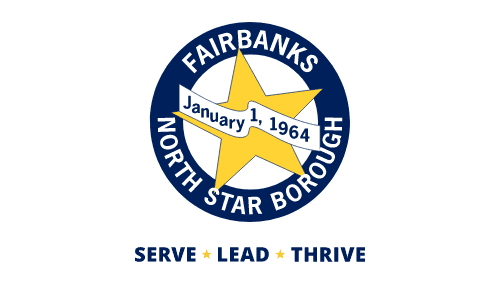Tagged with: cardiac arrest

September 17, 2024
ZOLL and PulsePoint Advocate For Universally Accessible AED Registry
ZOLL’s donation of the National AED Registry™ to the Emergency AED Registry, hosted by PulsePoint, optimizes dispatch and citizen responder accessibility to AED locations
The PulsePoint Foundation, a public non-profit 501(c)(3) that builds public safety applications and maintains the Emergency AED Registry, announced today that ZOLL®, an Asahi Kasei company that manufactures medical devices and related software solutions, has donated the National AED Registry™ to PulsePoint. ZOLL’s donation will increase emergency call taker access to known AED (automated external defibrillator) locations for use during cardiac arrest call processing. The donation represents a shared belief that every AED in the U.S. and Canada, regardless of brand, should have the option of being accessible to all communities.
Filed Under: Press Release, Highlights, News | Tagged With: ZOLL, Universally Accessible AED Registry, Emergency AED Registry, National AED registry, Automated External Defibrillator, AED Registry, AED, Emergency Telecommunicators, T-AED, Pre-arrival Instructions, EMD, EMD AED, EMD AED Registry, Emergency Medical Dispatch, Emergency Medical Dispatcher, PulsePoint AED, PulsePoint AED Registry, community AEDs, cardiac arrest, Sudden Cardiac Arrest, Sudden Cardiac Arrest AED, PSAP AED Registry, AED-Needed Alerts, AED registries, 911 AED, 911 AED Registry, residential AED initiative, public AED network, Stuart Berger, Citizen CPR Foundation, Elijah White, AED Coverage, HEARTsafe, aed.new, PulsePoint-connected communities, T-CPR, FirstNet

August 2, 2024
The Life-Saving Potential of 911-Initiated AED Response
In the initial moments after a cardiac arrest, seconds truly matter. Prompt deployment of an Automated External Defibrillator (AED) can be the difference between life and death. But the presence of a nearby AED may not be known to the caller or the emergency telecommunicator. Similar to providing cardiopulmonary resuscitation instruction (T-CPR), equipping telecommunicators with automated external defibrillator locations (T-AED) can improve outcomes. The PulsePoint Emergency AED Registry is accessible to telecommunicators through integrations with industry partners like PowerPhone.
Filed Under: News, Highlights | Tagged With: Automated External Defibrillator, Automated External Defibrillator Registry, AED, Emergency Telecommunicators, T-CPR, T-AED, Emergency AED Registry, PowerPhone, Total Response, Pre-arrival Instructions, EMD, EMD AED, EMD AED Registry, Emergency Medical Dispatch, PulsePoint AED, PulsePoint AED Registry, community AEDs, cardiac arrest, Sudden Cardiac Arrest, Sudden Cardiac Arrest AED, emergency dispatch center, PSAP, PSAP AED Registry, AED-Needed Alerts, AED registries, The Villages, Sumter County, neighbors needing defibrillators, Stephen Kennedy, 911 AED, 911 AED Registry, residential AED initiative, CARES, public AED network

November 27, 2023
911-initiated AED Response: Would you be willing to bring your AED to someone nearby experiencing a cardiac arrest?
While AED registries have traditionally been used to meet regulatory requirements, the growing use of dispatch-accessible, time-of-need emergency AED registries offers meaningful new opportunities to increase the use of these lifesaving devices. In addition to telecommunicator initiatives, communities are going further by using their registries to alert AED owners and program volunteers to nearby cardiac arrest events.
Filed Under: News, Event, Highlights | Tagged With: AED, 911-initiated AED, AED Alert, AED Response, AED Registry, AED Locator, AED Locations, AED Awareness, AED Registration, AED Registry for dispatchers, 911 AED, 911 AED Registry, EMD AED Registry, Emergency AED Registry, American Heart Association, AED Use, Heartrunner, GoodSam, cardiac arrest, Chain of survival, T-CPR, T-AED, EMD, Emergency Medical Dispatcher, Defibrillator Registry, Defibrillator, Integrated AED Locations, Pre-arrival Instructions, Emergency Telecommunicators, Emergency Dispatchers, CPR instructions, Recommending nearby AEDs, The Villages, Sumter County, AED Subscription, Stephen Kennedy, Residential AED, CARES, CARES Registry, Cardiac Arrest Registry to Enhance Survival, Cardiac Arrest Survival Summit, Community AED Volunteer, AED Responder

February 9, 2023
PulsePoint: Accessing the Closest Help to Treat Cardiac Arrests
By James Careless, All Things FirstNet
Every day in the United States, about 1,000 people suffer cardiac arrests. Every minute that passes between a cardiac arrest and the administration of aid decreases their chance of survival by 10%. Clearly, the sooner that medical assistance arrives, the better.
Speeding the arrival of help is the goal of the PulsePoint Foundation (PulsePoint), a 501(c)(3) public nonprofit organization. Mindful that even the fastest-dispatched EMS and fire agencies can take precious minutes to arrive, PulsePoint recruits CPR-trained volunteers to step in when they are closer to the scene. This is possible due to these volunteers running the free PulsePoint Respond app on their smartphones (available in Android and Apple iOS), and living in jurisdictions whose local 911 centers have registered to forward cardiac-related calls to PulsePoint as the calls come in.
Filed Under: News, Highlights | Tagged With: All Things FirstNet, FirstNet, Western Fire Chiefs Association, WFCA, PulsePoint Respond, David Pendergrass, Michael Garrison, James Careless, Steve Lopez, Tom Jenkins, International Association of Fire Chiefs, IAFC, cardiac arrest, CPR, AED, AED Registry
July 27, 2021
Utilizing a Full-Suite PulsePoint Integration to Address Out-of-Hospital Sudden Cardiac Arrests in Alaska’s Fairbanks North Star Borough
CASE STUDY / APRIL 2021
Alaska’s Fairbanks North Star Borough sought to address the rural community challenges of low bystander engagement and slower response times in out-of-hospital sudden cardiac arrest response. As part of a comprehensive strategy that included participation in the C.A.R.E.S. Registry and Resuscitation Academy, bystander CPR training, CPR and AED awareness programs, and strategic AED placement, Fairbanks launched PulsePoint May 2019.
Filed Under: Case Study, Highlights | Tagged With: Fairbanks, North Star Borough, Alaska, Rural, AED Registry, AED Management, AED Program, AED Registration, AED, Bystander Engagement, CARES, CARES Registry, Sudden Cardiac Arrest, cardiac arrest, Response Time, Resuscitation Academy, CPR, CPR Training, AED Awareness, Strategic AED Placement, Verified Responder, Cardiac Arrest Survival Rate, University of Alaska Fairbanks, Douglas Schrage, EMS Leadership, Case Study, Best Practice, Cardiac Arrest Registry to Enhance Survival, Fairbanks Emergency Communication Center, FECC, PSAP AED Registry, PSAP, PulsePoint Respond, Verified Responder Pro, Bleeding Control Kit, Naloxone, Epinephrine, PulsePoint AED, AED Consumable, Western Fire Chiefs Association, WFCA, Interior Fire Chiefs Association, Geoff Coon, Rotary Club of Fairbanks, Foundation Health Partners, CAD, American Red Cross, American Heart Association

October 22, 2020
Updated American Heart Association Guidelines Recommend Mobile Technology to Alert Bystanders
The AHA’s 2020 CPR Guidelines Recommend Emergency Dispatch Systems Alert Willing Bystanders Through Mobile Phone Technology, Like PulsePoint, to Assist in CPR and AED Retrieval
The 2020 American Heart Association (AHA) Guidelines for Cardiopulmonary Resuscitation (CPR) and Emergency Cardiovascular Care (ECC) were just released to include updated CPR guidelines that direct emergency dispatch systems to use mobile technology to activate early bystander response in sudden cardiac emergencies. The PulsePoint Respond app, the North American standard in alerting willing bystanders to CPR-needed events, is currently in more than 4000 communities and has built a network of more than 2.5 million subscribers.
Filed Under: Press Release, Highlights, News | Tagged With: American Heart Association, AHA, Guidelines, cardiac arrest, AED, AED Registry, Michael Kurz, Alabama Resuscitation Center, Michael Sayre, Steven C. Brooks, Canadian Institutes for Health, CIHR, Queen's University, CPR
